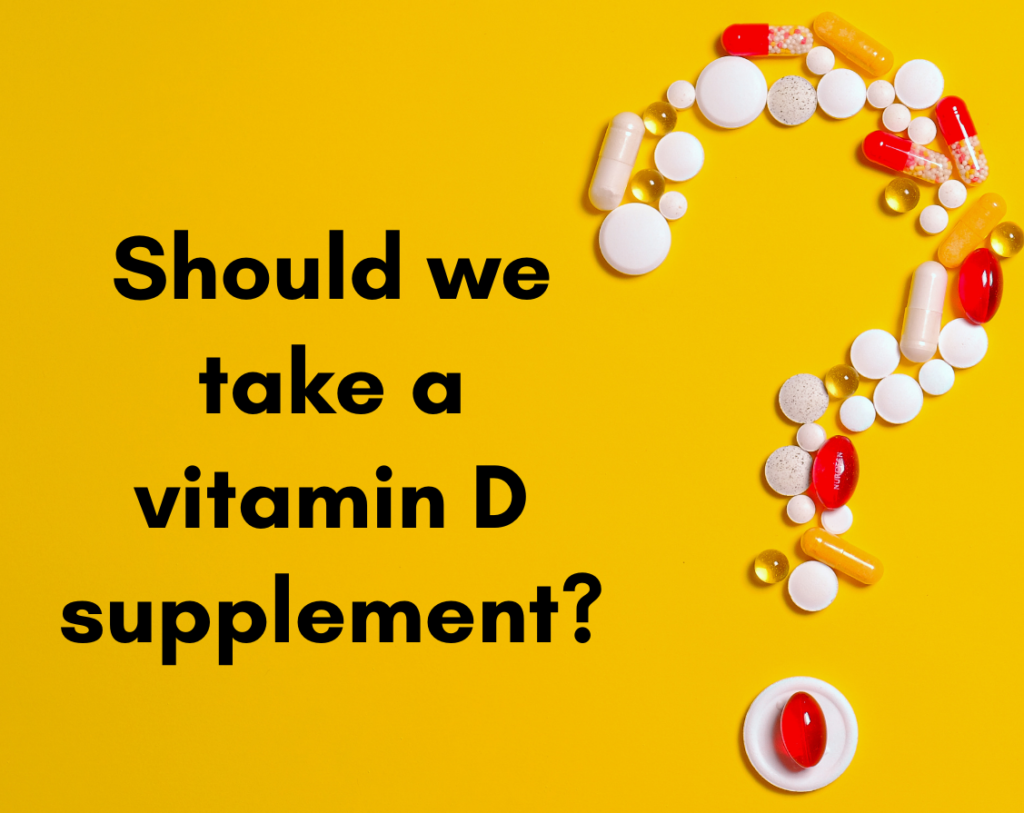Why we should care about vitamin D
Apparently, most of us are deficient in vitamin D. I didn’t realise this was an issue because my knowledge was:
a) it prevents rickets; and b) rickets is a thing of the past.
Right?
Wrong – on both counts.
I now realise that, unless you live an outdoor life in the Tropics, you need to take this vitamin.

We make vitamin D by absorbing sunlight
Vitamin D is not abundant in our diets; we’re designed to make it by absorbing sunlight through our skin. As humans evolved and spread across the world, varying skin tones developed so that people could make vitamin D even if they had less sunlight. It was a matter of survival, and it was good enough when we lived outdoor lives.
But we migrated indoors. Diseases like rickets and schizophrenia appeared along with the industrial revolution.
Vitamin D deficiency and illness
Nowadays there are higher incidences of MS, diabetes, Alzheimer’s, Parkinson’s, depression, anxiety and some types of cancer in northern regions of the world. And more people with these diseases have winter birthdays. Why? Because pregnant mothers need vitamin D in their third trimester to help the development of their unborn babies. And new-born babies need vitamin D since there is none in breastmilk.
Surely there can’t be any doubt that there’s a link between lack of sunlight, vitamin D deficiency, and our health. Just look at all the studies going on.1 And the theories from the scientific experts who suggest that too much sun avoidance could actually be having a serious impact on our health.2

The need to supplement
There’s a lack of health campaigns about the need for vitamin D, and we don’t appear to have concluded anything solid about it since the link between vitamin D and rickets was proved in 1919.
One suggestion is that since vitamin D can’t be patented, it’s not economical for drug companies to invest in. With the current research into synthetic (read: patent-able) vitamin D type compounds and their effectiveness for cancer treatment, there may be something there.
But really, for something as simple as a vitamin supplement that can do no harm if it’s consumed within the recommended dosage – why aren’t we all being told to take it? Even the slight possibility that it could help prevent or alleviate some serious health issues is enough to make me want to shout it from the rooftops: People of all ages need this vitamin in their bodies.
(And a quick but important side note: “Studies have shown that vitamin D3 appears to be more than three times as effective as vitamin D2, but most products that include the words ‘good source of vitamin D’ or ‘fortified with vitamin D’ on their labels contain the hugely inferior vitamin D2”)
For now, maybe we have to rely on our own self-education and instincts. Sunshine makes us feel good. And it’s just possible that this underrated vitamin could be one of the most basic keys to life and health itself.
So get out in the sun sensibly. Eat a healthy diet. And please, please – take a vitamin D3 supplement.
References:
1 Vitamin D research and MS, type 1 diabetes and type 2 diabetes, depression and anxiety, several types of cancer, Alzheimer’s disease, Parkinson’s disease and COVID-19
2 Oliver Gillie “The Forgotten Vitamin”
Recommended further reading:
Journal of Pharmacology & Pharmacotherapeutics:
www.ncbi.nlm.nih.gov/pmc/
articles/PMC3356951/
National Institutes of Health fact sheet:
ods.od.nih.gov/factsheets/
VitaminD-Consumer/

